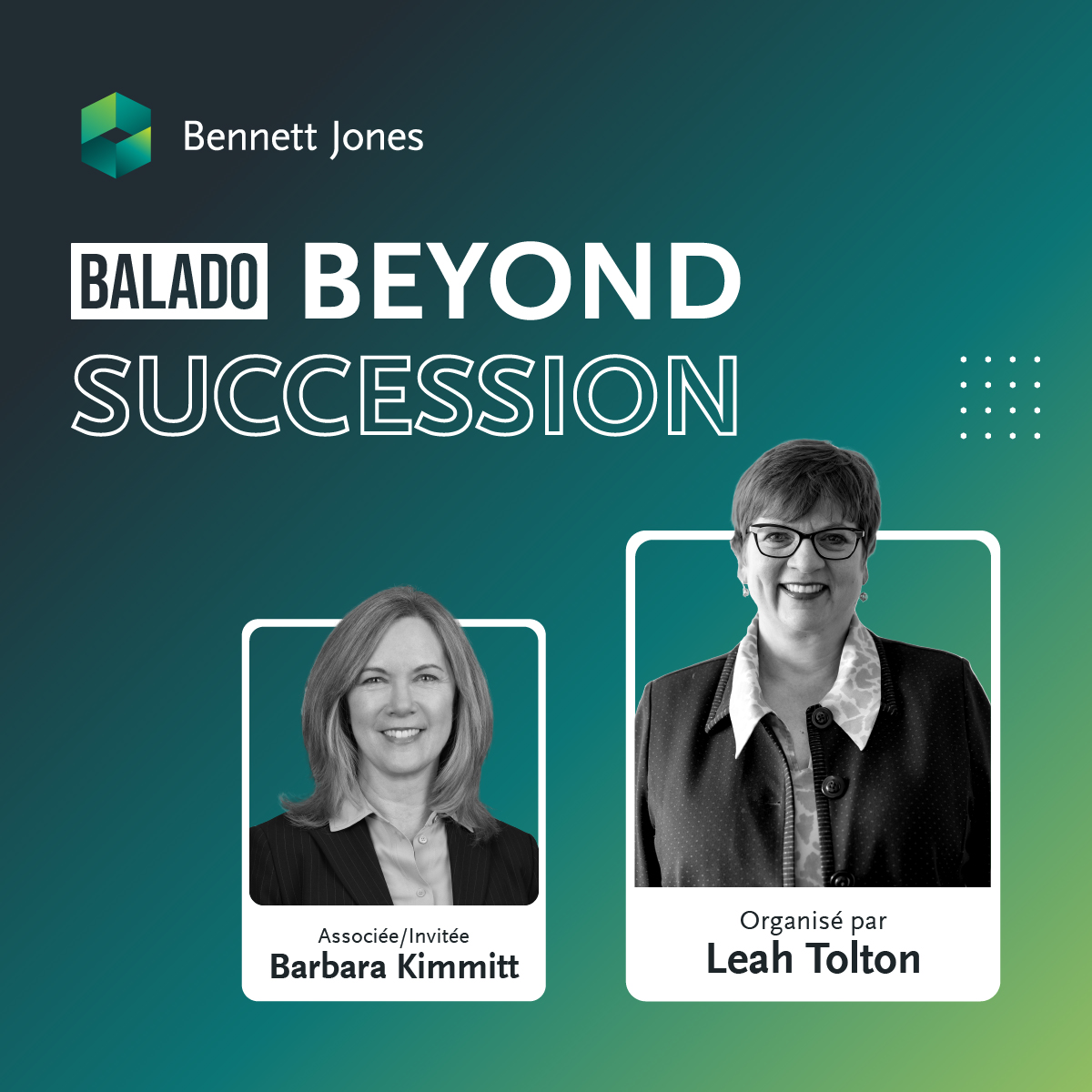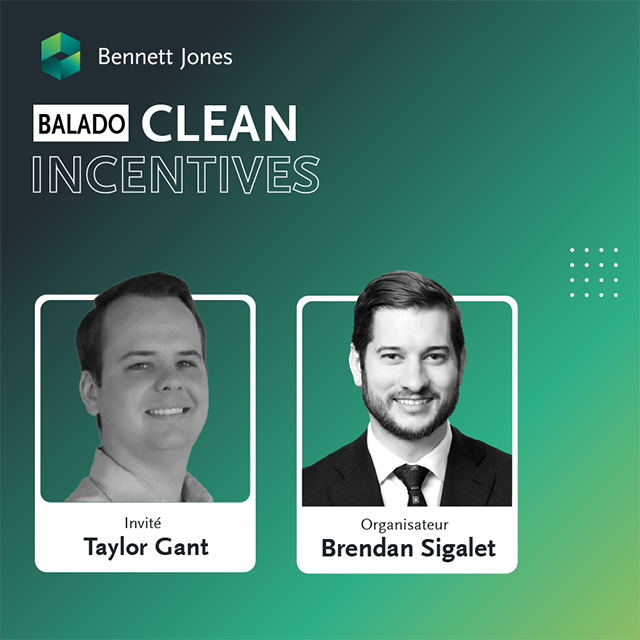Bienvenue à Au-delà de la succession, le podcast où vous répondez à vos questions les plus pressantes sur la pérennité de votre entreprise. Que vous soyez propriétaire d'une entreprise familiale, partie prenante ou entrepreneur passionné, ce podcast est un outil précieux qui aborde des sujets autour de la navigation dans les complexités de l'entreprise familiale. Rejoignez
Dans cet épisode, Leah est rejointe par Barbara Kimmitt KC, associé de Le groupe fiscal deBennett Jones, alors qu'ils discutent des subtilités de la planification de la transition de la propriété d'une entreprise familiale et de la planification successorale pour les entrepreneurs. Ils couvrent des sujets tels que les différences entre les testaments, les procurations perpétuelles et les directives préalables, et la façon dont ces documents jouent un rôle crucial dans la transition en douceur des entreprises familiales. L'épisode explore également l'importance d'avoir un plan de relève complet en place, y compris l'utilisation de structures fiduciaires et de conventions unanimes d'actionnaires.




